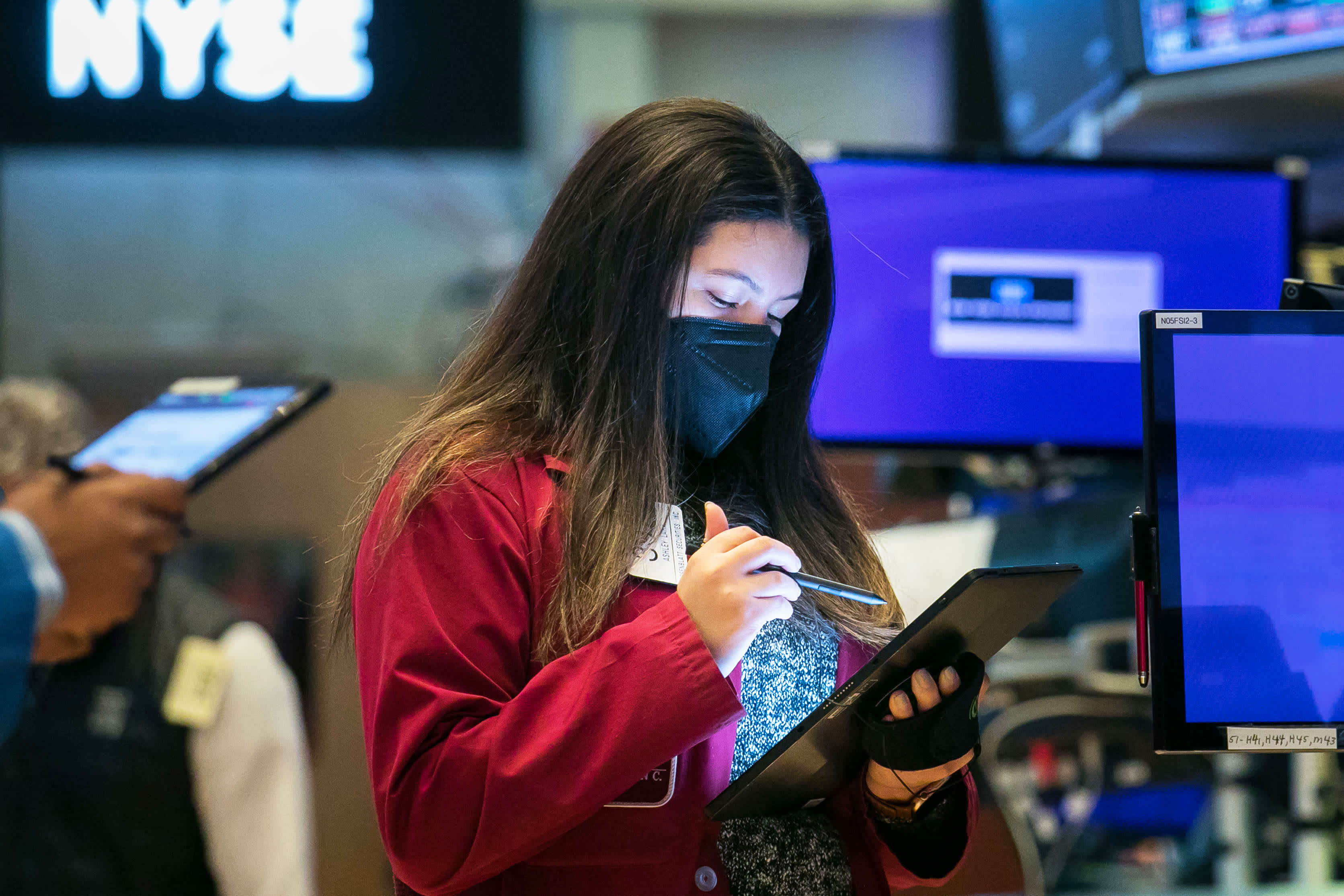U.S. stock index futures fell during Wednesday morning trading, accelerating losses from the regular trading session, which saw major averages close in red across the board.
Futures contracts linked to the Dow Jones Industrial Average fell 62 points. The S&P 500 and Nasdaq 100 futures fell 0.3% and 0.5%, respectively.
The shares recorded heavy losses during regular trading, with rising bond yields scaring investors. The S&P 500 fell 1.3%, while the Dow Jones Industrial Average closed 119 points, or 0.38%, below. The Nasdaq Composite was the relative worst performer, falling 2.7% as technology names declined. The index is on track to post its third consecutive negative week – the longest string of weekly losses since September.
The weakness came when the 10-year Treasury yield increased earnings. The benchmark rate rose to 1.49% on Wednesday, before easing slightly. Last week, yield rose to a 1.6% high in a move that some have described as a “flash” peak.
“Our current strategy work suggests robust economic growth this year with a modest increase in inflation,” noted Scott Wren, senior global equity strategist at the Wells Fargo Investment Institute. “In an attempt to read the tea leaves, the slope of the yield curve, in our opinion, reflects the market’s belief that growth and inflation should continue to move to appropriate levels as the pandemic subsides. We see this as a positive factor for stocks and other risky assets, such as commodities, “he added.
During Wednesday’s session, a positive point was the companies linked to the reopening of the economy. Shares of airlines and cruise operators increased after President Joe Biden said on Tuesday that the United States will have enough Covid-19 vaccines for all adults by the end of May.
Additional stimulus measures can also inject optimism into the market. The Senate is currently debating the $ 1.9 trillion aid package approved by the House on Saturday.
“Our macro team sees the economy as a spring, given additional vaccinations and stimuli,” wrote Keith Lerner, chief market strategist at Truist, in a note to customers. “The consumer’s ability and desire to spend on services and experiences should lead to the best economic growth we’ve seen in more than 35 years.”
On Thursday, investors will take a fresh look at the ongoing economic recovery when data on the first unemployment insurance claims for the week ending February 27 is released. Economists consulted by Dow Jones are forecasting 750,000 filers for the first time.
As for profits, BJ’s Wholesale and Kroger are among the names that report before opening, while Broadcom, Costco and Gap are ready to provide quarterly updates after closing.
Subscribe for CNBC PRO for exclusive insights and analysis, and live weekday scheduling around the world.
